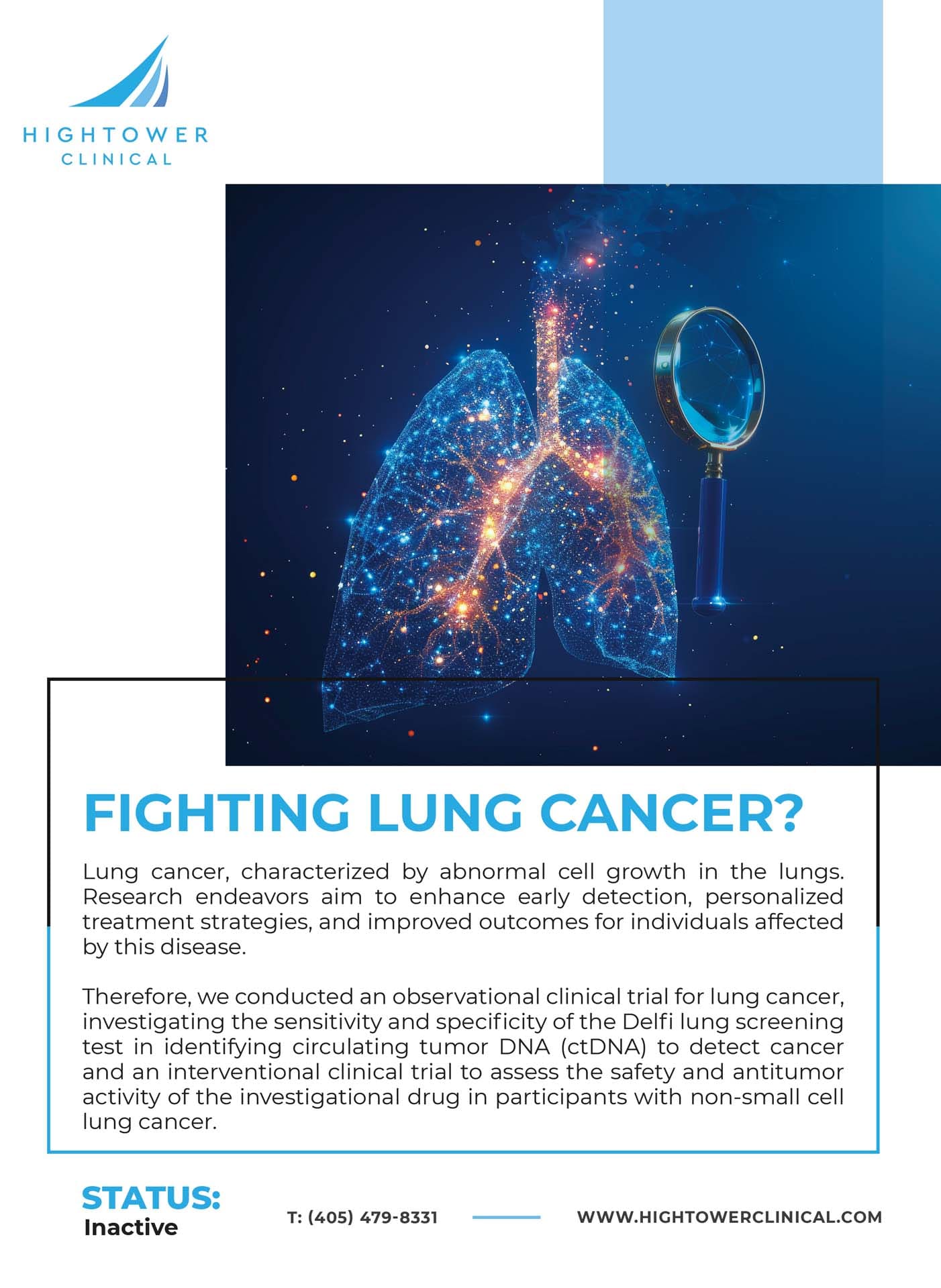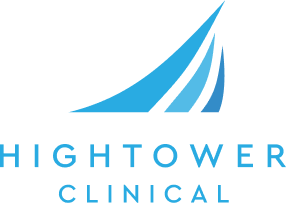A clinical lung cancer screening trial is a research study designed to evaluate the effectiveness of different screening methods for detecting lung cancer in high-risk individuals. These trials aim to improve early detection and reduce mortality rates associated with lung cancer.
Lung Cancer
Learn about Hightower’s pivotal role in advancing lung cancer research and treatment options.
Guide About Lung Cancer Study
Lung cancer remains a significant public health challenge. Non-small cell lung cancer (NSCLC) is the most common type of lung cancer, accounting for approximately 85% of all lung cancer cases. It develops in the tissues of the lungs and is characterized by the uncontrolled growth of abnormal cells that form tumors. We understand the urgency of finding effective therapies for lung cancer patients at Hightower.
Therefore, we conducted an observational clinical trial for lung cancer, investigating the sensitivity and specificity of the Delfi lung screening test in identifying circulating tumor DNA (ctDNA) to detect cancer and an interventional clinical trial to assess the safety and antitumor activity of the investigational drug in participants with non-small cell lung cancer.
Current Status
Not Recruiting
Study Count
2
Conducted Lung Cancer Clinical Trials
| Study Name | Protocol Number | Sponsor |
|---|---|---|
| Lung Cancer | DELFI-L201 | Delfi Diagnostics Inc. |
AP32788-15-101 | Takeda |
Frequently Asked Questions
Who is eligible to participate in a lung cancer screening clinical trial?
Eligibility criteria for lung cancer screening trials may vary but typically target individuals at high risk for developing lung cancer: risk factors, such as occupational exposure to carcinogens, may also be considered.
What are the potential benefits of participating in a lung cancer screening clinical trial?
Participation in a lung cancer screening trial may provide access to screening technologies and early detection methods that are not widely available. Additionally, participants may contribute to advancements in lung cancer screening research, ultimately leading to improved outcomes for high-risk individuals.




